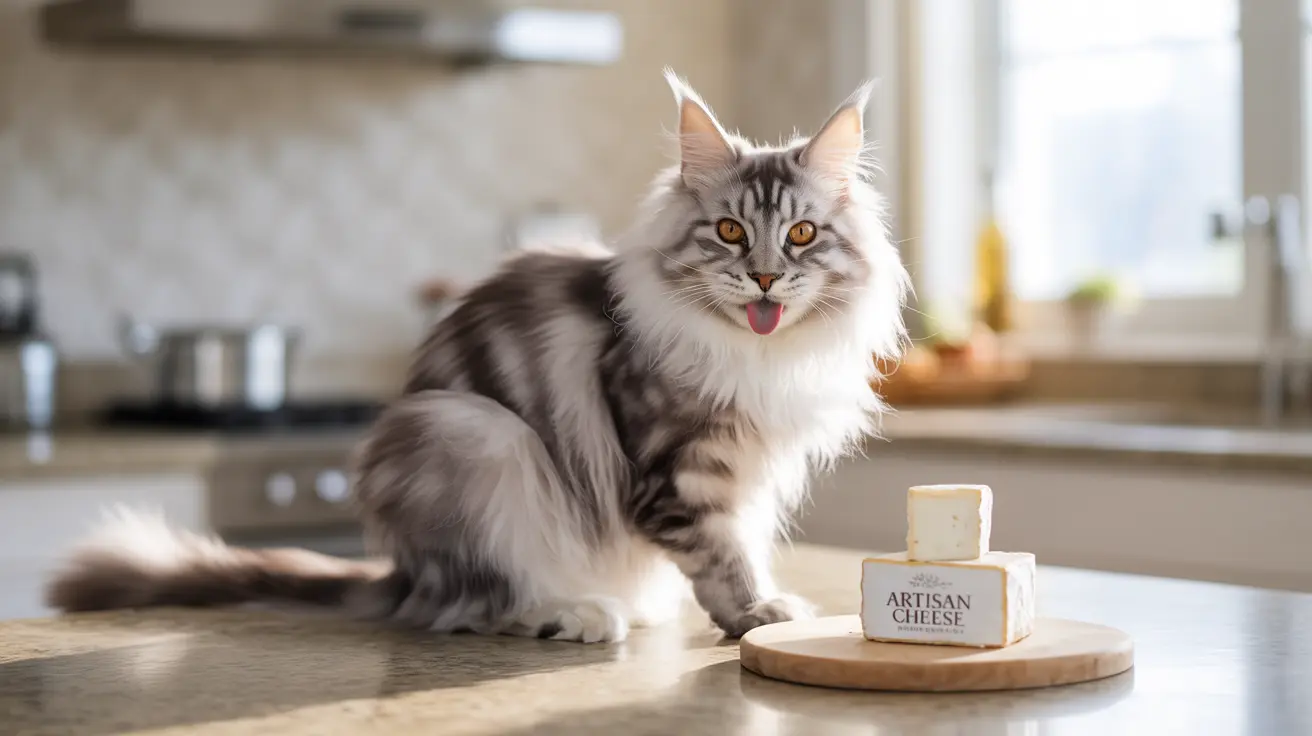If you've ever wondered whether your feline friend can safely enjoy goat cheese, you're not alone. While cats are primarily carnivores, many pet owners are curious about offering their pets different treats, including dairy products. This comprehensive guide will explore everything you need to know about feeding goat cheese to cats, including benefits, risks, and proper serving sizes.
Understanding the relationship between cats and dairy products is crucial for making informed decisions about your pet's diet. While most adult cats are lactose intolerant, goat cheese presents some unique characteristics that make it a potentially safer option compared to other dairy products.
Understanding Goat Cheese and Cats
Goat cheese differs from traditional cow's milk cheese in several important ways. It contains less lactose and features a different protein structure, making it potentially easier for some cats to digest. Each ounce provides approximately 103 calories, 6 grams of protein, and 8 grams of fat, along with essential vitamins and minerals.
Benefits of Goat Cheese for Cats
While not essential to a cat's diet, goat cheese does offer some potential benefits when given in moderation:
- Lower lactose content compared to cow's milk cheese
- Good source of protein and calcium
- Contains beneficial vitamins like A and B2
- Can be useful for hiding medications
- Generally easier to digest than other dairy products
Potential Risks and Concerns
Despite its benefits, there are several important considerations before feeding goat cheese to your cat:
- Most adult cats lack sufficient lactase enzyme
- High fat content can contribute to obesity
- Excessive sodium levels may be problematic
- Risk of digestive upset and diarrhea
- Possible allergic reactions in some cats
Proper Serving Guidelines
When introducing goat cheese to your cat's diet, follow these important guidelines:
- Start with tiny amounts (pea-sized portion)
- Monitor for any adverse reactions
- Limit treats to no more than 10% of daily calories
- Only offer plain goat cheese without herbs or additives
- Consider it an occasional treat, not a dietary staple
Special Considerations for Different Cats
Not all cats will respond the same way to goat cheese:
- Kittens generally tolerate dairy better than adult cats
- Seniors may have more sensitive digestive systems
- Cats with existing health conditions should avoid it
- Overweight cats should have very limited portions
Frequently Asked Questions
Can cats safely eat goat cheese, and how much is appropriate as a treat?
Yes, cats can safely eat small amounts of plain goat cheese as an occasional treat. A pea-sized portion once or twice a week is generally appropriate for most healthy adult cats.
Why is goat cheese easier for some cats to digest compared to cow's milk cheese?
Goat cheese contains less lactose and different protein structures than cow's milk cheese, making it potentially easier for some cats to digest. It also contains more medium-chain fatty acids, which can be processed more efficiently.
What are the possible side effects if my cat eats too much goat cheese?
Common side effects include digestive upset, diarrhea, vomiting, bloating, and increased thirst. Long-term overconsumption can lead to weight gain and other health issues.
Should I avoid flavored or herb-added goat cheese for my cat?
Yes, only offer plain goat cheese to your cat. Flavored varieties often contain ingredients like garlic, herbs, or spices that can be harmful or toxic to cats.
How can I introduce goat cheese to my cat without causing digestive problems?
Start with a very small amount (smaller than a pea) and observe your cat for 24 hours for any adverse reactions. If there are no issues, you can occasionally offer similar small portions as a treat.
While goat cheese can be a safe occasional treat for cats, it's essential to remember that it should never replace their regular, meat-based diet. Always consult with your veterinarian before introducing new foods to your cat's diet, especially if your pet has any existing health conditions or dietary restrictions.






